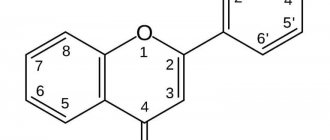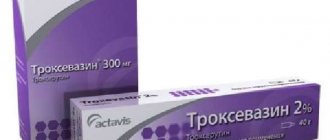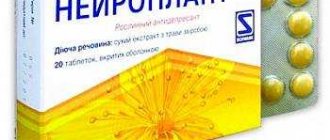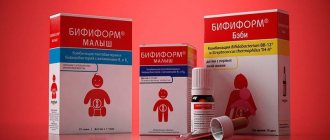Cobalamins, or B12 vitamins, are substances that are essential for the human body. These are complex compounds of protein origin, responsible for many of the processes carried out by them. Their deficiency leads to the development of serious pathologies, the treatment of which can take a long time. Often, correcting the diet is not enough to replenish the elements in the human body, then experts recommend using vitamin B12 in tablets. Before starting use, it is important to obtain detailed advice from a specialist and study the instructions for use.
What is vitamin B12?
Vitamin B12 is also called cyanocobalamin. Other alternative names are antianemic vitamin (that is, preventing anemia), extrinsic Castle factor.
As with other vitamins, the definition of “vitamin B12” includes a whole group of compounds, including cyanocobalamin, methylcobalamin, hydroxoxycobalamin, and deoxyadenosylcobalamin.
The substance is water-soluble. It is produced by the intestinal flora in minimal quantities that cannot satisfy the body's needs. In the human body it accumulates in the liver. In its pure form it has a rich pink color.
Potential Side Effects
Vitamin B12 is a water-soluble vitamin, meaning your body excretes unnecessary amounts in urine.
Because this nutrient is relatively safe, there is no established upper dosage limit. The upper limit is considered the maximum amount of a substance that can be safely taken without side effects.
However, vitamin B12 has been shown to cause rare side effects in some cases.
Vitamin B12 injections can lead to skin conditions such as acne and dermatitis (rash) ().
High doses of B vitamins (more than 1,000 mcg) have also been linked to complications in people with kidney disease ().
Additionally, extremely high levels of B12 in mothers have been linked to a higher risk of autism in their children ().
Summary:
Although high doses of vitamin B12 supplements have been associated with rare side effects in some people, it is generally safe and there is currently no recommended maximum dose for this vitamin.
Foods rich in vitamin B12
Vitamin B12 is found in animal products. The highest dosages of vitamin B12 are found in the liver, and organ meats are also rich in it. Smaller amounts of cyanocobalamin are present in eggs and dairy products. Other sources are even less rich in it.
There is an opinion that a large amount of vitamin B12 is contained in spirulina algae. For this reason, many vegetarians who do not eat animal food and are not willing to pay for it with their health eat algae.
However, they do not contain a true vitamin, but the so-called pseudovitamin B12. It has a similar chemical structure, but does not perform the same functions as vitamin B12. Moreover, it may have a toxic effect on the body!
If you preach vegetarianism, you are not recommended to consume such products; it is best to buy vitamin B12 as part of the drug and take vitamins in tablets.
Absorption of vitamin B12 from food
The absorption and metabolism of cyanocobalamin from food is very interesting and unusual. The most important condition for the successful absorption of the vitamin is not only its presence in food, but also a healthy stomach. On the surface of the gastric mucosa there is a special mucopolysaccharide called intrinsic Castle factor. Vitamin B12 (as mentioned above, its second name is Castle's extrinsic factor) combines with this mucopolysaccharide. Only after this the vitamin is absorbed.
Absorption normally occurs quite quickly, and the vitamin immediately binds firmly to blood plasma proteins. Accumulating in the liver, it is excreted in small quantities with bile into the intestines. But the body does not give up the substance that is so valuable to it: the vitamin is reabsorbed from the intestines into the blood.
Is it possible to take the vitamin during pregnancy or breastfeeding?
Cyanocobalamin is necessary for a woman during pregnancy and lactation if it is not supplied in sufficient quantities from food or there is a violation in the absorption of the substance. B12 is necessary for improving metabolism, strengthening the immune system, normal growth and development of the fetus, improving memory and endurance in adults and children.
Not every complex can be taken during pregnancy and lactation. The drug should be prescribed and used exclusively under the strict supervision of a specialist.
Signs of vitamin B12 deficiency
With a chronic lack of vitamin B12, a person may develop anemia. At the same time, there are fewer red blood cells in his blood, the hemoglobin content in them decreases, but the red blood cells themselves increase in size.
Along with a change in the blood picture, with insufficient dosages of vitamin B12, a “varnished tongue” may appear: the tongue becomes inflamed, its papillae smooth out, due to which it acquires a red, shiny surface. Sometimes, with cyanocobalamin deficiency, symptoms such as tingling, numbness in the tongue and limbs, neuritis, decreased mood, headaches, nausea, and discomfort in various parts of the body develop.
It has been proven that a long-term lack of vitamin B12 sometimes leads to severe damage to the nervous system and mental disorders, such as depression.
Instructions for use
Currently, there are several pharmaceutical companies producing cobalamins in tablet form. Pharmacists in pharmacies often offer complex preparations containing them. However, the main points in the instructions indicating how to use them are the same.
Beneficial features
Considering the fact that the main active ingredient in the tablets is cobalamin elements, that is, vitamin B12, their beneficial properties are:
- normalization of the process of absorption and oxidation of lipid particles;
- production of essential amino acid substances;
- normalization of the hematopoietic system;
- participation in the process of creating nerve endings such as myelin sheaths;
- reducing the amount of cholesterol deposits;
- protection of the hepatic system from various harmful factors affecting it from the outside;
- normalizing blood pressure levels;
- normalization of sleep and wakefulness;
- prevention of the development of depressive disorders;
- prevention of the development of senile dementia, confusion of thinking;
- strengthening the immune system;
- providing anabolic effects;
- normalization of the reproductive system in men and women.
It is important that the human body receives the required daily dose of cobalamins. So, for adults it is 2.4 mcg, for newborns - from 0.4 to 0.5 mcg, children under three years old - 0.9 mcg, up to eight years old - 1.2 mcg, up to thirteen years old - 1.8 mcg, before reaching adulthood – 2.4 mcg. For pregnant and lactating women, the daily requirement increases to 2.6 and 2.8 mcg, respectively.
Indications for use
Most often, hypovitaminosis B12 occurs in people who want to improve their figure with regular diets and refuse food of animal origin. Indications for prescribing the tablet form of the drug are:
- anemia caused by a lack of vitamin B12;
- weakened immunity, expressed in frequent infectious and bacterial diseases;
- disruption of the functioning of the hematopoietic system;
- hepatitis;
- cirrhosis of the hepatic system;
- alcohol poisoning;
- polyneuritis;
- radiculitis;
- neuralgia;
- presence of phantom pain;
- cerebral palsy;
- Down syndrome;
- multiple sclerosis;
- dermatitis;
- neurodermatitis;
- psoriasis;
- pathologies of the gastrointestinal tract;
- diseases of the renal system.
It is extremely important to use tablets during constant physical and mental stress, at moments when the body must be as resistant to stress as possible.
Contraindications
Contraindications to the use of this form of substances of group B12 are:
- their individual intolerance;
- blockage of blood vessels in the hematopoietic system, which is acute in nature;
- blood cancer;
- excess of glandular cells and erythroid cells in human genetic material.
You should not take medications containing cobalamins on your own if:
- insufficient functioning of the cardiovascular system;
- pregnancy;
- breastfeeding;
- cancer;
- thrombophilia.
How to use?
Most often, experts recommend using one chewable tablet per day. They are either dissolved by placing them under the tongue or taken with food by chewing. The dosage depends on the patient’s condition, as well as on the recommendations of the manufacturer producing the prescribed drug. It is important to remember that there are substances and products with which B12 cannot be used. These include:
- vitamins B1, B2, B6, C;
- salt formations of heavy metals;
- antiepileptic drugs;
- coagulant agents.
If a specialist considers it necessary to use both medications simultaneously, it is better to use them alternating, but not using them within one day. In addition, there are complex preparations where the dosage of “hostile” substances is selected in such a way as not to cause harm to the human body.
Side effects
Side effects when using drugs where the main active ingredients are cobalamins are rare. However, among them they note:
- increased excitability;
- rapid heartbeat, pain in the heart area;
- allergies, manifested in the form of urticaria;
- violation of the metabolism of purine substances;
- hypercoagulability.
If these conditions occur, you should stop taking the medication immediately. It would be useful to visit a doctor, since a person’s condition may require symptomatic therapy.
Is an overdose possible?
The condition of hypervitaminosis B12 usually occurs when:
- constant, uncontrolled use of tablets;
- exceeding the dosage prescribed by the doctor.
Symptomatic overdose can manifest itself in:
- itching of the skin;
- pulmonary edema;
- peripheral vascular thrombosis;
- congestive heart failure.
In extremely rare cases, the development of anaphylactic shock is observed. At the first symptoms of hypervitaminosis, you should abandon the cobalamin-containing drug. Next, you need to consult a doctor, otherwise you may end up in a hospital bed.
Why does vitamin B12 deficiency occur?
The following are the main causes of hypovitaminosis B12:
• Diseases of the stomach and small intestine. • Previous operations on the stomach (the first cases of severe anemia caused by vitamin B12 deficiency were described in patients who had had their stomach removed). • Infection with intestinal parasites (the tapeworm consumes vitamin B12 especially heavily). • Liver diseases. • Diet low in animal products.
A healthy human liver in adulthood can have time to accumulate large amounts of vitamin B12. Therefore, even under the influence of negative factors that interfere with the absorption and production of the vitamin, a person may not experience signs of cyanocobalamin deficiency for a long time, since his body uses up reserves.
Foods or drinks to avoid
Some foods and drinks can affect vitamin B12 in the body.
Foods fortified with folic acid
Folate (vitamin B9) is an essential nutrient, especially before and during pregnancy. The Centers for Disease Control and Prevention (CDC) states that women of reproductive age need 400 mcg of folic acid (synthetic folate) every day (4).
However, excess folic acid intake may mask vitamin B12 deficiency. Research shows that high levels of folic acid may even worsen anemia and cognitive symptoms associated with vitamin B12 deficiency. For these reasons, folic acid intake from fortified foods should not exceed 1,000 mcg per day in adults in good general health (1).
Alcohol
Research has shown that alcohol consumption can reduce vitamin B12 levels (5).
An older study found that moderate alcohol consumption reduced vitamin B12 levels by 5% among healthy, well-nourished postmenopausal women (6).
Alcohol-related liver disease may falsely show increased levels of vitamin B12 during tests. People with alcohol-related diseases may need supplements to correct vitamin B12 deficiency and anemia (7).
Foods Deficient in Vitamin B12
Some people find that certain plant foods are good sources of vitamin B12. These products include:
- spirulina
- dried nori seaweed
- barley sprouts
- other algae
- raw foods
However, many researchers believe that these foods are not suitable for treating vitamin B12 deficiency. For example, vitamin B12 in cyanobacteria such as spirulina has very low bioavailability (8, 9).
Therefore, while you can include the above-mentioned foods in your diet as a healthy supplement, you should not rely on them as a source of vitamin B12.
Vitamin B12: price and sale
Vitamin B12 is actively used in medicine to treat anemia and some neurological diseases. In addition, its use is possible in everyday life by healthy people. If you want to take vitamin B12 for health purposes, you can buy it on our website. We offer vitamin B12 in different types and at different prices, from leading manufacturers. You can choose the most suitable name yourself by reading the information we provide about the drugs you like.
The purchase can be made through the website by adding the desired drug to the cart, or by phone by calling our managers.
There is a toll-free number for regions 8 800 550-52-96.
Vitamin B complex Vitamin B12 (Cyanocobalamin)
Release form, how to take
Drugs produced in tablet form must be taken strictly under the supervision of a physician, observing the daily dosage and duration of the course, according to the instructions from the manufacturer or as prescribed by a specialist.
The daily dosage of the drug, depending on the patient’s condition, varies between 250-1000 mcg. It is recommended to take the tablets half an hour before meals. The dragee can be chewed. For children who have difficulty swallowing a large pill, the drug is given dissolved in boiled water. The exact dosage regimen is described in the instructions for use.











